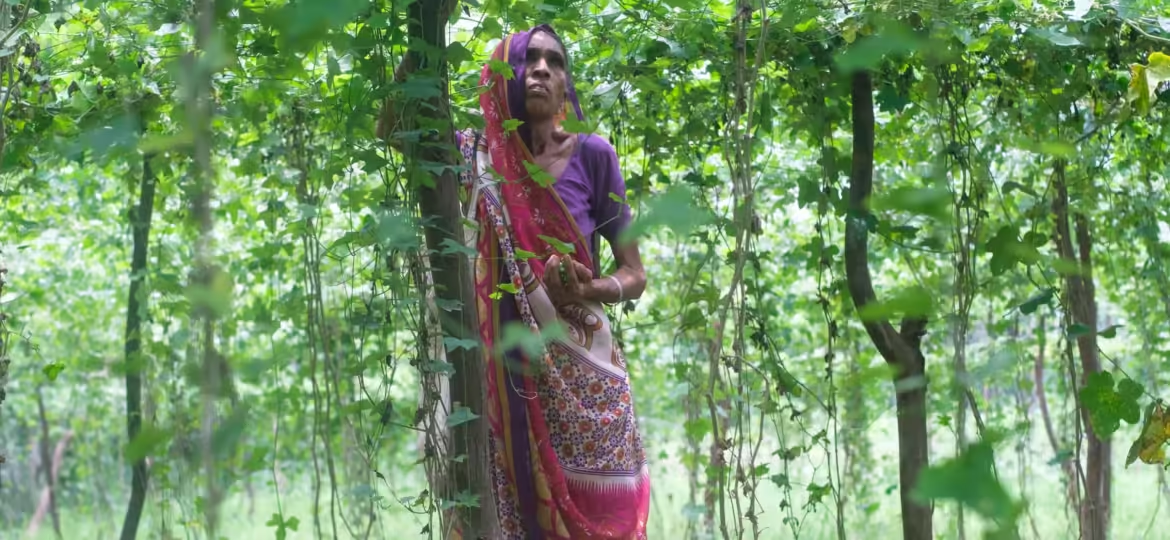
Snakes, Ladders, and Sustainable Farming with Vatrak Cooperative
Bringing Climate Resilience Training to Vatrak Women Farmers
As the SEWA Cooperative Federation team entered Vitthalpura village of Kheda to conduct a climate resilience training for women farmers, smoke from burning agricultural waste filled the air. It was a stark reminder of the challenges facing farmers and of why we were there.
On 26th and 27th September 2025, around 45 farmers of the Shree Vatrak Women Farmers Cooperative (earlier known as Kheda Women Farmers Cooperative) gathered for their first ever climate resilience training. Among them were young mothers with infants, high school graduates preparing to farm, and elderly women with decades of experience. The newly elected woman Sarpanch of the village hosted us at her home, making it a collective space for dialogue and learning.
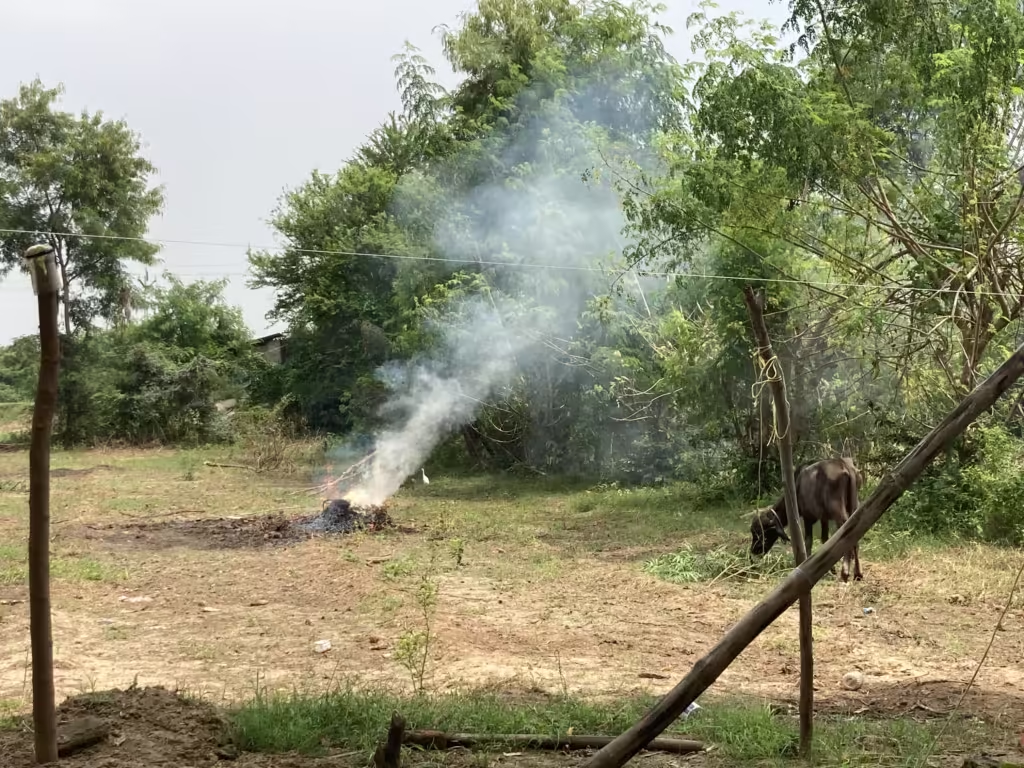
From Learning Ourselves to Sharing with Cooperatives
As Miraiben Chatterjee, Chairperson of SCF, has reminded us: we must equip ourselves with information and skills, because our cooperatives are already reporting the impacts of climate change. With this in mind, we strengthened our own climate lens by learning about heat waves, wet bulb temperatures, and unseasonal rainfall through workshops with partners like CSTEP. Only then did we begin carrying these ideas to the grassroots, simplifying concepts into modules that connect directly with the realities of informal women workers’ cooperatives.
In Kheda, the training began with icebreakers and questions about what “climate change” meant to the women. Their answers reflected lived experience like memories of floods in Banaskantha, lack of rains in Ahmedabad, and cloudbursts in Punjab. Visual aids helped connect these experiences to larger patterns: the earth shown as a melting ice cream, greenhouse gases illustrated with everyday examples. This climate resilience training for women farmers introduced concepts like adaptation (anukulan) and mitigation (nivaran).
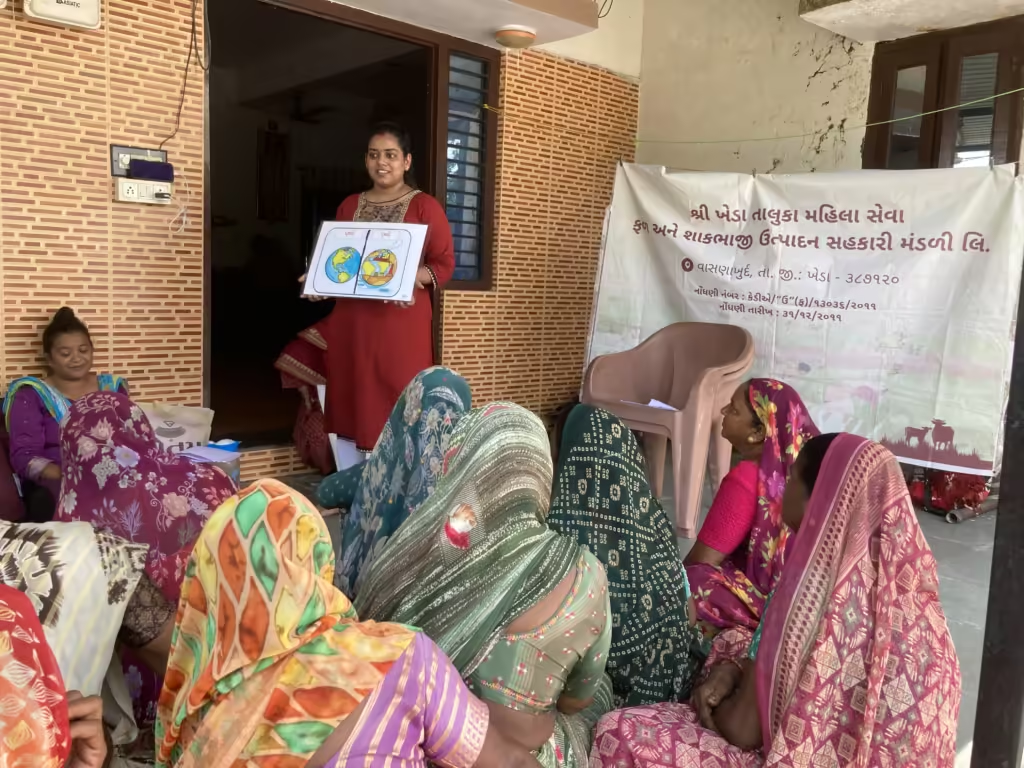
Snakes, Ladders, and Farming Practices
To cement the theory, our capacity building team introduced a farmers’ version of snakes and ladders. Four volunteers stepped forward, each representing a farmer. The rules were simple: snakes stood for harmful practices like deforestation, excessive chemical use, burning of agro-waste, frequent deep land excavations etc. Ladders stood for sustainable practices like usage of manure, crop-rotation, afforestation, drip-irrigation, solar-pump installations etc which lifted farmers towards vadhaaro (economic growth in cooperatives).
The board became a mirror for the choices farmers make every day; some pushing them back, others moving them forward. Some women argued about the pressure to use fertilisers when markets demanded uniform crops, while others shared how seed saving had helped them in lean years. Younger women picked up new terms quickly, while older members shared how they had always observed weather shifts in their daily work.
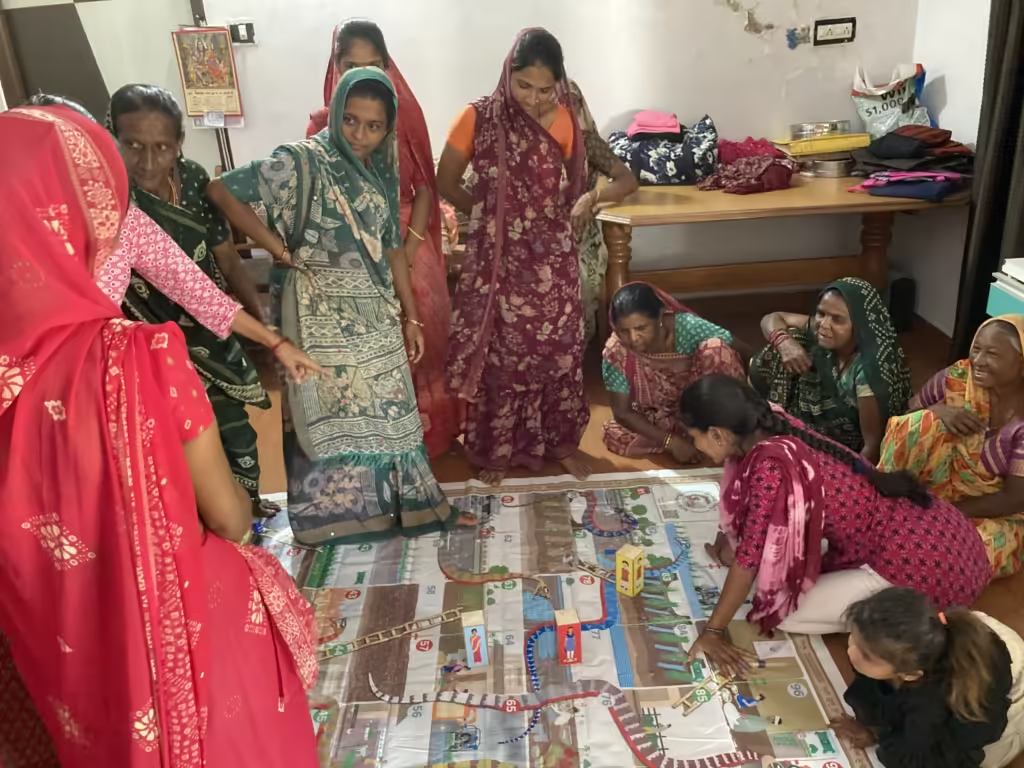
Why Cooperatives Matter in Climate Resilience
It was interesting to observe a value chain where the flow of knowledge was bidirectional. Trainers simplified complex science for farmers, while farmers’ insights revealed the ground realities that no textbook could capture. As one elderly member shared:
I am so used to walking in the harsh heat that on the day I don’t, I catch a fever. I often fight with my daughter-in-law to be out in the sun.
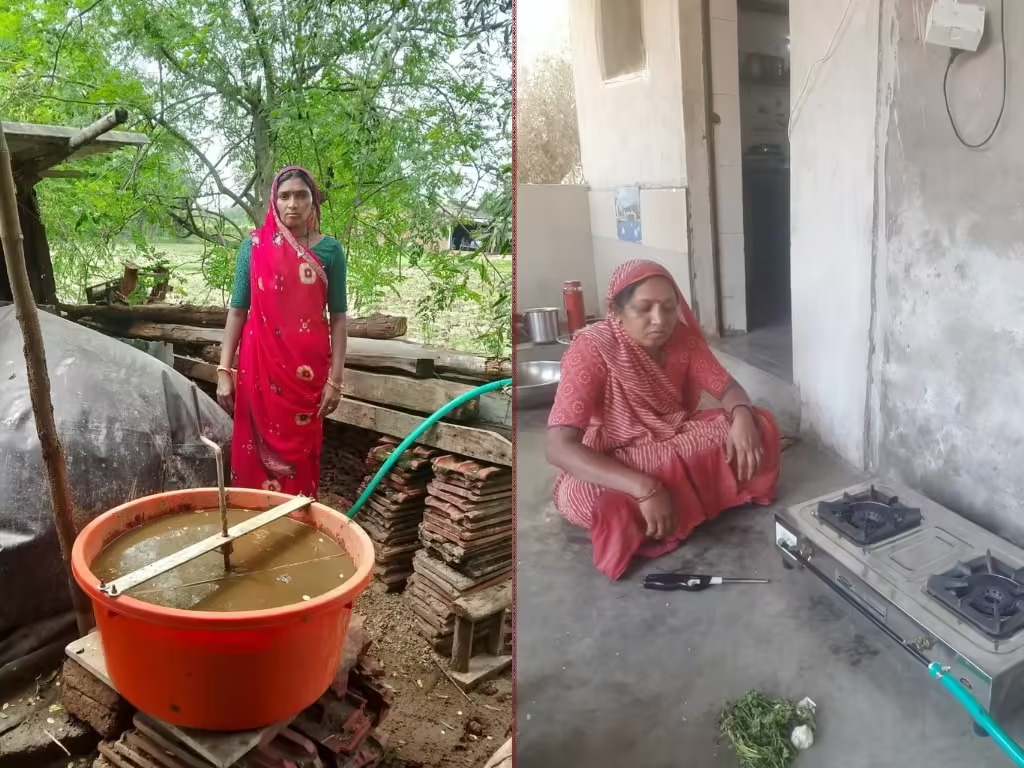
This is why cooperatives matter. When capital-driven agriculture often pushes farmers into extractive cycles, women’s collectives create sustainable alternatives. They share knowledge, pool risks, and choose practices that protect both livelihoods and the land. The snakes-and-ladders game was not just an activity but a reminder that resilience is built not through competition, but through cooperation.

